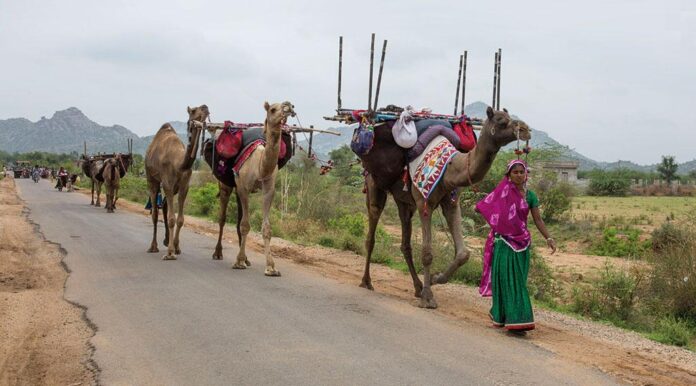Livestock Census 2024 to Include Pastoral Communities for the First Time in 100 Years
Date: September 10, 2024 Location: New Delhi, India
The 21st Livestock Census represents a landmark step for pastoral communities across India. For the first time since its inception in 1919, an initiative to capture data of livestock bred by pastoral communities is in place. This important development, led by the Ministry of Fisheries, Animal Husbandry, and Dairying, and supported by the efforts of various Civil Society Organizations is a crucial step towards recognizing and acknowledging Pastoralism as a prominent and widespread practice.
Pastoralism is a traditional livestock-management system that can be traced back to generations, in which communities move with animals to different grazing areas in a seasonal or migratory pattern and raise livestock for milk, meat, wool, dung, and other products. India is estimated to be home to 13 million pastoralists spread across 22 States who collectively contribute to around 3% of the national GDP. The versatile practice thrives across various ecosystems, adapting to climate changes and promoting ecological balance. Recognising these characteristics towards the UN’s Sustainable Development Goals, 2026 is designated to be the International Year of Rangelands and Pastoralists.
Pastoralism in Livestock Census
Livestock Census is a massive door-to-door survey conducted every five years by the Animal Husbandry Statistics (AHS) Division, DAHD, for formulating policies and allocating resources for the livestock sector. The Census accounts for all domestic livestock (cattle, buffalo, mithun, yak, sheep, goat, pig, horse, pony, mule, donkey, camel, dog, rabbit, and elephant) and poultry birds (fowl, duck, etc.). A distinctive capturing of the data of pastoral livestock is a unique effort of the 21st Livestock Census. The Census guidelines have introduced two criteria to define a pastoralist from a traditional community: (a) Movement (migrating with the livestock for at least one month in a year), and (b) Dependence on common resources (eg: village commons, grazing sites, forest fringes, etc.)
The nature of the pastoral practice has often led to an exclusion of the enumeration of their livestock (as they are often found outside villages and in far-away fields), which has led to lack of targeted policies. However, this initiative will mark the first step towards introducing livestock insurance and vaccination policies, rehabilitation schemes, and much more in years to come.
About Pastoral Census Support Cell
Pastoral Census Support Cell is a dedicated unit initiated by Sahjeevan-Centre for Pastoralism and Revitalising Rainfed Agriculture Network (RRAN)-WASSAN coordinating with Animal Husbandry Statistics (AHS) division, DAHD to provide ground/field support in locating pastoral communities and supporting enumerators. This is possible with the support of various NGOs and pastoral youth active in their respective states to facilitate awareness campaigns and capacity-building activities at the community level. The objective is to engage with enumerators and build proactive community participation during the process of data collection.


